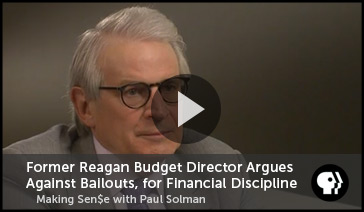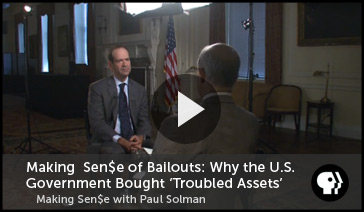
Grades 9-12

Don't have an account yet? Sign up for free
Don't have an account yet? Sign up for free


In addressing the compelling question "Does money matter in political campaigns?" students work through a series of supporting questions, formative performance tasks, and featured sources in order to construct an argument with evidence while acknowledge competing perspectives.
This inquiry leads students through an investigation of campaign finance by examining election costs, expenditures, and the complex relationships between candidates and political-action committees. By investigating the compelling question “Does money matter in political campaigns?” students dissect contemporary political campaigns in order to assess whether or not campaign-finance reform should take place. In investigating contemporary evidence on campaigns and campaign finance, students develop an understanding of who is funding political campaigns and evaluate the extent to which campaign funding is problematic.
NOTE: This inquiry is expected to take five to eight 40-minute class periods. The inquiry time frame could expand if teachers think their students need additional instructional experiences (i.e., supporting questions, formative performance tasks, and featured sources). Teachers are encouraged to adapt the inquiries in order to meet the needs and interests of their particular students. Resources can also be modified as necessary to meet individualized education programs (IEPs) or Section 504 Plans for students with disabilities.
This inquiry was created by C3 Teachers and is also available on the C3 Teachers website. Source: "Campaign Finance Inquiry,” C3 Teachers, http://www.c3teachers.org/inquiries/campaign-finance/ , CC BY-NC-SA 4.0
See the Summative Performance task above.
Summative Performance Task Extension:
Students could extend these arguments by creating a public service announcement that addresses campaign finance and argues for or against limiting who can contribute to political campaigns. The public service announcements could take the form of a video, radio segment, or class skit.
Taking Informed Action:
Students have the opportunity to Take Informed Action by researching current political campaign ads to understand who is funding each ad and whether the ad is in support of the candidate or against the candidate’s opponent. Students then assess the extent to which candidates (once elected) vote in favor of those who have funded them. Lastly, students can act by using assorted media platforms to create a presentation that conveys students’ views about campaign-finance reform.
Does money matter in political campaigns? Construct an argument (e.g., detailed outline, poster, essay) that addresses the compelling question using specific claims and relevant evidence from contemporary sources while acknowledging competing perspectives.

Grades 9-12

Grades 9-12

Grades 9-12

Grades 9-12
